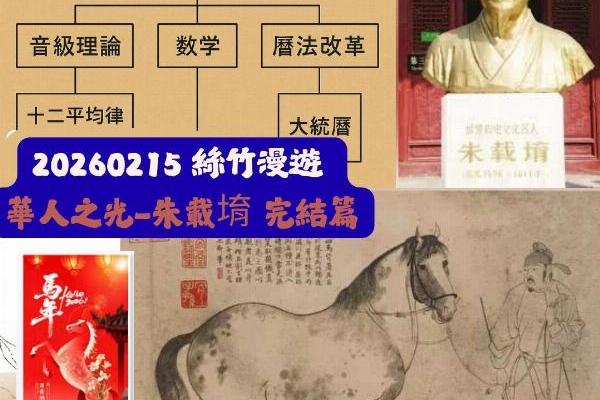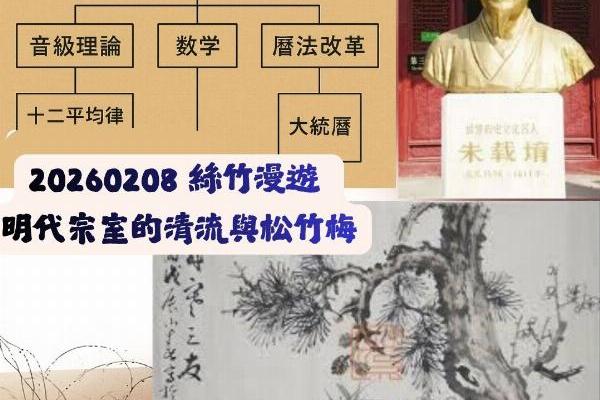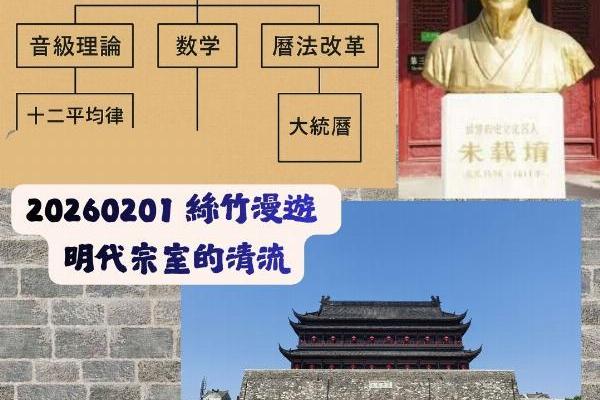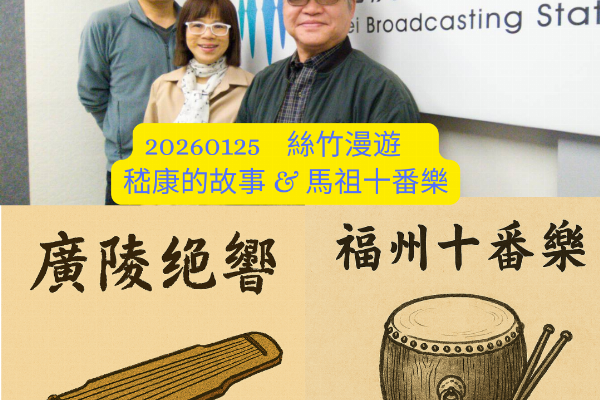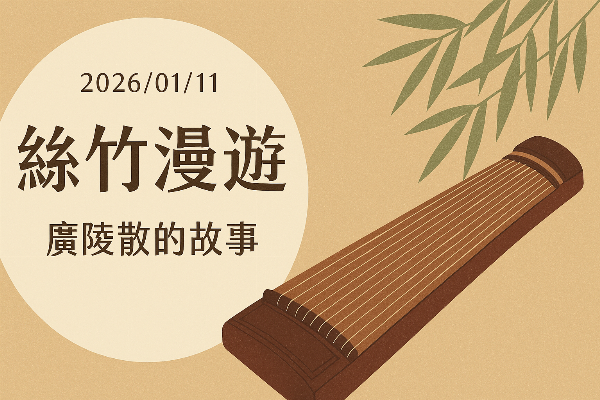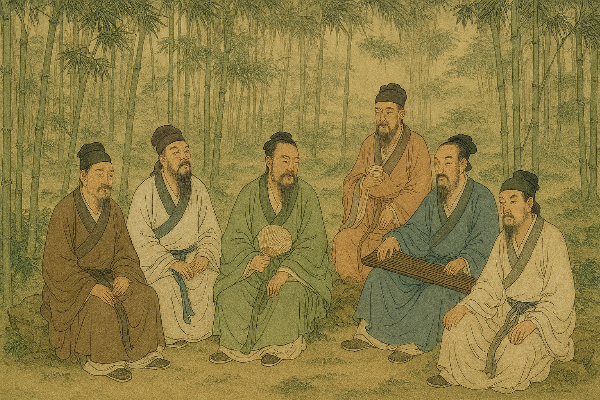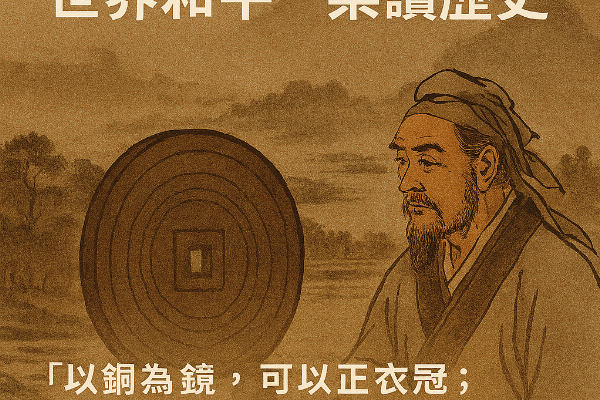
::::::
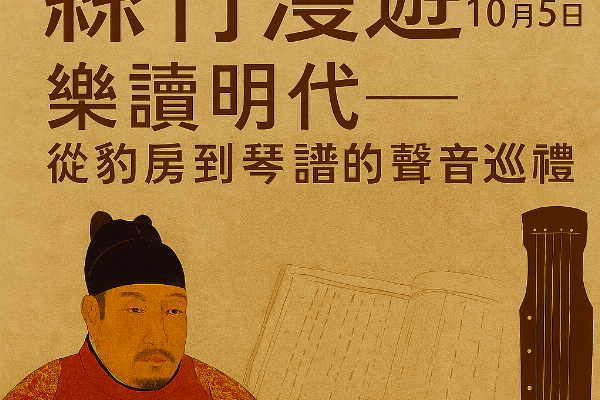

絲竹漫遊
主持人劉馬利

本集主題
20251005【絲竹漫遊】樂讀明代——從豹房到琴譜巡禮
音樂裡有文學性,文學中有韻律感。音樂是文學的延伸,是文人的筆墨,也是時代的回音,但如果濫用的話,就會淪為是權力的工具。
本集節目分為兩大部份。首先,在最受大家歡迎的【晚安,音樂故事館】中,邀請您窺探明武宗朱厚照的世界。他偏愛奇技淫巧,不拘禮法,甚至在宮中設立「豹房」——一處融合娛樂、實驗與軍事的私人空間。在這樣的氛圍中,音樂成為權力的延伸與感官的工具,甚至引發樂工干政的歷史爭議。透過戲劇化的演繹,我們重新思考音樂與權力的關係。
本集內容
20251005【絲竹漫遊】樂讀明代——從豹房到琴譜巡禮
音樂裡有文學性,文學中有韻律感。音樂是文學的延伸,是文人的筆墨,也是時代的回音,但如果濫用的話,就會淪為是權力的工具。
本集節目分為兩大部份。首先,在最受大家歡迎的【晚安,音樂故事館】中,邀請您窺探明武宗朱厚照的世界。他偏愛奇技淫巧,不拘禮法,甚至在宮中設立「豹房」——一處融合娛樂、實驗與軍事的私人空間。在這樣的氛圍中,音樂成為權力的延伸與感官的工具,甚至引發樂工干政的歷史爭議。透過戲劇化的演繹,我們重新思考音樂與權力的關係。
第二篇章則轉向古琴文化的文人化與系統化進程。明代是琴譜刊刻最為繁盛的時期,朱權的《神奇秘譜》、蔣克謙的《琴書大全》等,不僅保存唐宋遺音,更展現文人對音樂的深度參與與審美追求。琴譜不只是演奏指南,更是思想的載體與文化的縮影。透過「琴譜巡禮」,我們不只是聆聽音樂,更是在閱讀明代的文化密碼。
本集曲目
1. 洞庭秋思 (古琴、二胡、簫)
2. 陽春 (古琴)
3. 漁歌調 (琴歌)
4. 湘妃怨 (古琴)
5. 傍妝合 (簫與絲竹樂)
6. 《傍妝台》(國樂合奏版)
7. 傍妝台 (京胡與擊樂)
本集【晚安,音樂故事館】感謝艾爾森飾演朱厚照、秦浩老師飾演秦謳、欣亞飾演蘇婉
【Let’s listen to and enjoy】
This episode is Reading Ming through Music explores two facets of Ming dynasty sound culture. First, it examines Emperor Zhu Houzhao’s indulgent use of music within his private “Leopard Chamber,” where entertainment and power intertwined. Second, it traces the literati’s systematization [͵sɪstəmətɪˋzeʃən] of qin scores, highlighting the revival of Song repertoire from Tang, song dynastes and the philosophical depth embedded in Ming-era musical aesthetics. Through curated pieces like Dongting Autumn Thoughts《洞庭秋思》, Fisherman’s Song《漁歌調》, and Peilan《佩蘭》, the program reveals how music served both imperial desire and scholarly refinement, offering a rich lens into Ming cultural imagination.
1. 洞庭秋思 (古琴、二胡、簫) 2. 陽春 (古琴) 3. 漁歌調 (琴歌) 4. 湘妃怨 (古琴) 5. 傍妝合 (簫與絲竹樂) 6. 《傍妝台》(國樂合奏版) 7. 傍妝台 (京胡與擊樂)
LIVE
